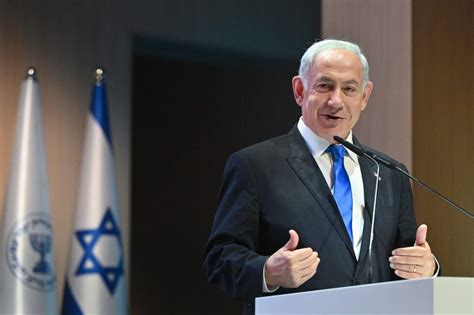Hungary made waves on Thursday with a significant announcement – the country has decided to officially withdraw from the International Criminal Court (ICC). This decision was not taken lightly, as it will have far-reaching implications on Hungary’s international relations and legal obligations.
Gergely Gulyás, the minister overseeing Prime Minister Viktor Orbán’s office, delivered the news with clarity and determination. He stated, “The government will initiate the termination procedure on Thursday, in accordance with the constitutional and international legal frameworks.” This move signals Hungary’s intention to assert its sovereignty and independence in matters of justice and global governance.
The timing of this announcement is particularly noteworthy, coming hot on the heels of Israeli Prime Minister Benjamin Netanyahu’s arrival in Budapest. Netanyahu himself is no stranger to ICC scrutiny, having been issued an arrest warrant for alleged war crimes and crimes against humanity related to Gaza. Despite these accusations looming over him, Netanyahu embarked on a state visit to Hungary where he is set to hold crucial discussions with Prime Minister Orbán on Thursday morning.
Orbán’s invitation to Netanyahu last year, amidst the backdrop of the ICC warrant hanging over the Israeli leader, underscored Hungary’s stance on international judicial matters. The Hungarian leader made it clear that his country would not be swayed by external legal pressures when it came to hosting foreign dignitaries facing ICC indictments.
As a former member of the ICC, Hungary was bound by treaty obligations to cooperate in arresting and extraditing individuals subject to ICC warrants. However, Orbán’s bold stance challenges this norm and sets a precedent for other nations grappling with similar dilemmas regarding ICC mandates.
In a parallel incident that raises eyebrows globally, Russian President Vladimir Putin – another figure under an ICC arrest warrant for alleged war crimes in Ukraine – managed to travel without hindrance to Mongolia last year despite being within reach of an ICC signatory nation. These high-profile cases involving world leaders shine a spotlight on the complexities and controversies surrounding international justice mechanisms like the ICC.
The decision by Hungary to exit the ICC reflects a broader trend of skepticism towards supranational institutions among certain countries. By asserting their autonomy in legal affairs through such actions, nations like Hungary send a strong message about prioritizing national interests over international judicial oversight.
Expert Insights:
Renowned political analyst Dr. Maria Kovacs notes that Hungary’s withdrawal from the ICC represents a strategic move aimed at consolidating domestic support for Orbán while challenging perceived encroachments on national sovereignty by global bodies like the ICC.
Eminent legal scholar Prof. Stefan Novak observes that Orbán’s defiance of conventional norms regarding cooperation with the ICC may embolden other leaders facing similar predicaments to resist external pressures and maintain their diplomatic engagements unhindered.
Global Relations specialist Dr. Sofia Petrov highlights how geopolitical dynamics play out in situations involving high-stakes diplomatic interactions amid legal controversies such as those surrounding Netanyahu and Putin vis-à-vis their respective brushes with ICC warrants.
Ultimately, as countries navigate complex geopolitical landscapes intertwined with legal disputes at international forums like the International Criminal Court, each decision taken reverberates far beyond national borders – shaping perceptions about sovereignty, accountability, and diplomatic immunity at a global scale.

